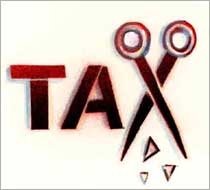The Central Board of Direct Taxes, the government's apex tax policy and collection body, has suggested that the new direct taxes code abolish Minimum Alternate Tax and continue to offer individuals tax exemptions on savings under the existing EEE (exempt-exempt-exempt) method.
 The board will send its recommendations on the code, a draft of which was put up for public discussion in August, to the government in about a month after internal discussion that will also take industry suggestions into account. CBDT will also suggest changes in the direct taxes code proposal on the double taxation avoidance agreements.
The board will send its recommendations on the code, a draft of which was put up for public discussion in August, to the government in about a month after internal discussion that will also take industry suggestions into account. CBDT will also suggest changes in the direct taxes code proposal on the double taxation avoidance agreements.
"We are considering comprehensive changes in the direct tax code. We are also trying analyse the impact the code might have on tax collections. We will finalise our recommendations as soon as possible, hopefully in a month," a CBDT official told Business Standard on condition of anonymity.
Recently, Finance Minister Pranab Mukherjee had assured industry that the government was open to re-examining proposals in seven key areas - including MAT, capital gains tax, DTAA, general anti-avoidance rule, taxation of charitable organisations and of foreign companies in India, and EET (exempt-exempt-tax, meaning savings would be taxed on withdrawal).
After the finance minister's go-ahead, CBDT is now looking into all major aspects of the code and will suggest more changes before a final draft is sent to the parliamentary standing committee.
The government plans to implement the code by April 1, 2011, and may table the draft in Parliament in the upcoming winter session. The code marks the first major revision since it was introduced in 1961.
A few weeks ago, the National Academy of Direct Taxes, the apex training and educational body for direct tax officers, submitted a sharply critical report on the code.
The Academy opposed proposals to cut personal income and corporate tax and scrap taxes on various transactions on grounds that these would lead to heavy revenues losses.






